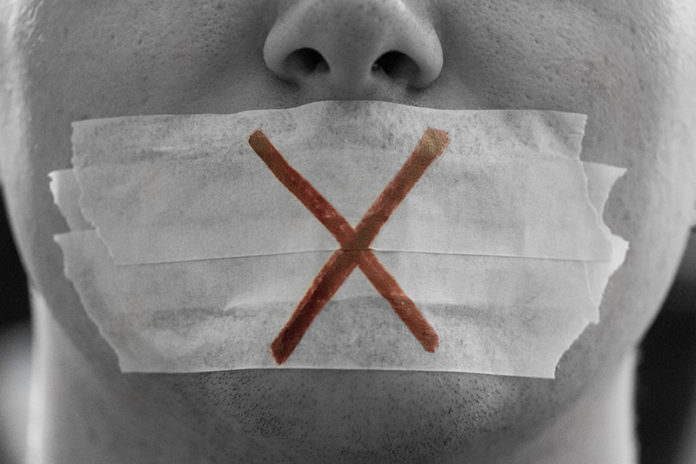Social media companies are scarcely lifting a finger to police antisemitism on their platforms, researchers for an international digital watchdog charge in a bombshell report released last month.
The Center for Countering Digital Hate tracked postings on Facebook, Twitter, Instagram, YouTube and TikTok and caught the tech giants asleep at the proverbial switch.
Cumulatively, the companies failed to remove 84% of anti-Jewish screeds reported to the websites as violations of their terms of service, the CCDH revealed in its 28-page report, “Failure to Protect.”
The advocacy group’s diagnosis — tech companies are woefully incompetent when it comes to enforcing their own rules — is all too correct. But the CCDH’s proposed cure is worse than the disease.
“Failure to Protect” concludes with five recommendations. Four are obvious, common-sense suggestions for Big Tech to voluntarily adopt, and they comprise a half page of the report.
The recommendation listed first, to which a page and a half of space is devoted, cheerleads for government censorship.
“If legislators want to stop hate corroding our society, they must learn from others’ success in dealing with social media platforms which give a megaphone to racism, abuse, and hate,” the CCDH states.
The “others” from whom the United States should learn? European countries with strict hate speech laws.
A full-throated attack on Section 230 of the Communications Decency Act follows. The CCDH says revising the law would create “financial disincentives for the tolerance of hateful extremism.”
“When a platform fails to act in a reasonable way, after sufficient warnings, and when it fails to deploy its vast resources to avoid harms generated on their platform, courts should be free to decide if someone harmed by their inaction has suffered a tort that deserves restitution and compensation,” the report states.
Section 230 shields website operators from liability for hosting third-party user content, but its modification or repeal wouldn’t throw open the courthouse doors to every Facebook and YouTube user who spots an offensive post. U.S. law has no torts that address antisemitism, Holocaust denial and anti-Jewish conspiracy theories. The First Amendment forecloses such claims.
Without the protection Section 230 provides, users could sue social networks for libel and defamation under a theory of vicarious liability. Those torts come into play when someone publishes false factual claims about specific individuals that harm their reputations.
Spreading hate about Jewish people as an ethnic or religious minority isn’t actionable, as no plaintiff could represent all Jews or prove that a single social media post caused material harm to millions of people.
The report contrasts the U.S. with Germany and the United Kingdom. Germany’s Network Enforcement Act imposes fines on platforms that fail to remove hate speech, and an online safety bill in Parliament would allow the British government to regulate social media in much the same way.
Hate speech bans are unconstitutional in the United States, whose founders had the wisdom to recognize that giving government the authority to censor its citizens is more dangerous than allowing bigots to spew bile in a marketplace of ideas where reasonable people can refute and rebuke them.
Germany’s impulse to suppress antisemitism may seem rational, but its zeal to atone for Hitler’s atrocities overlooks a sad irony. The Nazis wielded censorship as a weapon, burning books, shuttering newspapers and making it illegal to criticize the government. The way to truly repudiate Nazi totalitarianism is to strip the state of its power to punish speakers, not to merely change which kind of speech warrants punishment.
The CCDH doesn’t directly advocate for abolishing the First Amendment, but that’s what adopting its full range of recommendations would require. Giving Section 230 a little nip and tuck won’t do the trick.
In another recent report, the organization calls out social media companies for allowing the spread of anti-vaccination conspiracy theories and identifies the top 12 sources of COVID-19 misinformation. Its work on that project is laudable.
If the center ever publishes a report on legal and constitutional misinformation, however, its poorly reasoned broadsides against Section 230 and freedom of speech in “Failure to Protect” would require the CCDH to list itself among the perpetrators.






























